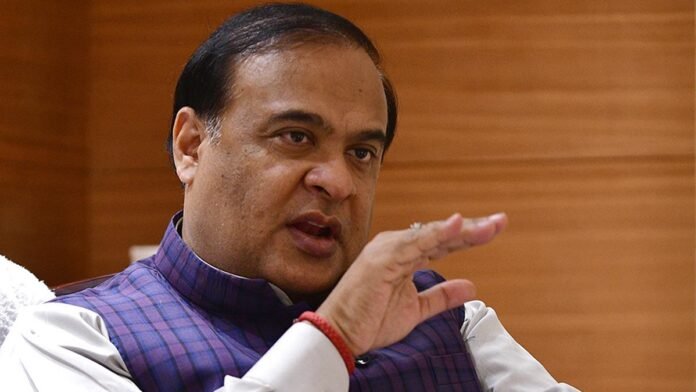In a bid to address concerns and dispel rumors surrounding the relocation of refugees from Arunachal Pradesh to Assam, Chief Minister Himanta Biswa Sarma has reaffirmed that there are no plans in place for such a move. The statement comes amidst speculation and apprehension within communities residing in both states, highlighting the sensitive nature of issues related to migration and displacement.
Arunachal Pradesh, known for its pristine landscapes and rich cultural heritage, has been home to a diverse array of indigenous communities for centuries. However, recent years have witnessed a surge in tensions and conflicts arising from the influx of refugees from neighboring regions, including parts of Assam.
The issue of refugee resettlement has been a contentious one, fraught with complexities and challenges. While the plight of displaced individuals seeking refuge is undeniably heartbreaking, the question of their integration into existing communities poses significant socio-economic and cultural ramifications.
Against this backdrop, Chief Minister Himanta Biswa Sarma’s assurance that there are no imminent plans to relocate refugees from Arunachal Pradesh to Assam comes as a welcome relief to many. The statement not only allays fears of potential demographic shifts but also underscores the importance of dialogue and cooperation in addressing sensitive issues of migration and displacement.
It is imperative to recognize that the issue of refugee resettlement is not a standalone concern; it is deeply intertwined with broader questions of identity, citizenship, and socio-economic equity. Any decision regarding the relocation of refugees must be made with careful consideration for the rights and aspirations of both the displaced individuals and the host communities.
In this context, Chief Minister Sarma’s emphasis on the need for a comprehensive and inclusive approach to addressing the challenges posed by refugee influx is noteworthy. Rather than resorting to hasty measures or unilateral actions, the focus should be on fostering dialogue, building trust, and finding sustainable solutions that uphold the dignity and rights of all stakeholders involved.
Central to this approach is the recognition of the unique cultural and historical identities of communities residing in Arunachal Pradesh and Assam. Both states boast rich cultural heritage and diverse ethnic tapestries, which must be preserved and celebrated. Any attempt to forcibly relocate refugees without due regard for these cultural nuances risks exacerbating existing tensions and undermining the social fabric of these regions.
Furthermore, it is essential to address the root causes driving the displacement of individuals from their homes. Whether it be conflict, environmental degradation, or economic hardship, tackling these underlying issues requires a concerted effort at both the state and national levels. By addressing the structural factors fueling displacement, we can work towards creating conditions conducive to peace, stability, and prosperity for all.
At the heart of the matter lies the fundamental principle of compassion and solidarity towards our fellow human beings in need. The plight of refugees, whether they hail from Arunachal Pradesh or any other region, demands our collective empathy and support. As a nation built on the ideals of democracy and inclusivity, it is incumbent upon us to extend a helping hand to those who have been forced to flee their homes in search of safety and security.
In addition, Chief Minister Himanta Biswa Sarma’s assertion that there are no plans to relocate refugees from Arunachal Pradesh to Assam underscores the importance of a measured and inclusive approach to addressing issues of migration and displacement. By prioritizing dialogue, cooperation, and respect for cultural diversity, we can navigate the complexities of refugee resettlement while upholding the dignity and rights of all individuals involved. As we strive towards a more equitable and compassionate society, let us reaffirm our commitment to standing in solidarity with those in need, regardless of their place of origin.




